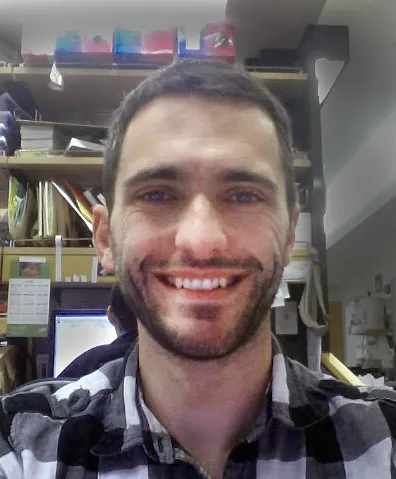
Pay It Forward at Maitri
Volunteer: Ed Roberts, Postdoctoral Scholar
Organization: Maitri (Residential Care for People Living with AIDS)
Synapse: Why did you get involved with Maitri, and why would you recommend this organization to others?
I have always volunteered in organizations where I am working face to face with service users, and have found this hugely rewarding. Each person you interact with has a story, and getting to share it is a huge honor.
I found Maitri, a residential hospice that provides end-of-life or respite care to people with AIDS, who often don’t have the means to support themselves.
I liked the ethos of the charity, giving priority to those with not only the most medical need, but also to those with the fewest options. The stories you hear in hospice can be heartbreaking but also, at times, side-splittingly hilarious.
A homeless guy who had been in prison, etc., said to me that he didn’t know why people would volunteer to come in and spend time with them, but he was really glad we did, and it made him realize there was more good in people.
Synapse: What does the role entail?
The basic role is that of being an emotional support to residents. This can involve sitting and chatting with someone who can’t leave their bed, or it can mean sitting on the smoking patio with a few residents having a laugh.
There are only 15 residents, so you build relationships with all of them and spend your time with whoever wants company. Often volunteers will accompany residents to the hospital or for doctors’ appointments.
Synapse: What is the training like?
The initial training was two weekends, where we covered various topics from boundaries, grief and inclusivity; I felt the main thing we took away from training was the chance to build a support network with other new volunteers.
Once you have finished that training, you have a buddy shift where you shadow an existing volunteer. This was the most useful part of training, as it gave you an idea of what you actually do while at hospice, from helping to serve dinner, to aiding residents playing Bingo to just sitting with someone who can’t communicate but may like the company.
Synapse: What’s the time commitment afterwards?
Once you finish training, they ask you to commit to one shift a week. They ask that you make the shift four hours, but this is pretty flexible and works around your schedule. This can be during the day or in the evening.
I do one evening a week — mainly because on Wednesdays you can help with Bingo, which is always interesting.
For the trips out or for doctors’ appointments, there is an email list where requests are sent. There are also occasional emails to the list(Serv) asking for volunteers to simply sit with residents who are actively dying.
Synapse: How would someone else get involved if interested?
Contact Stan Stone at Maitri (maitrisf.org/care/), and he will guide you. There is a training every six months for new volunteers.



